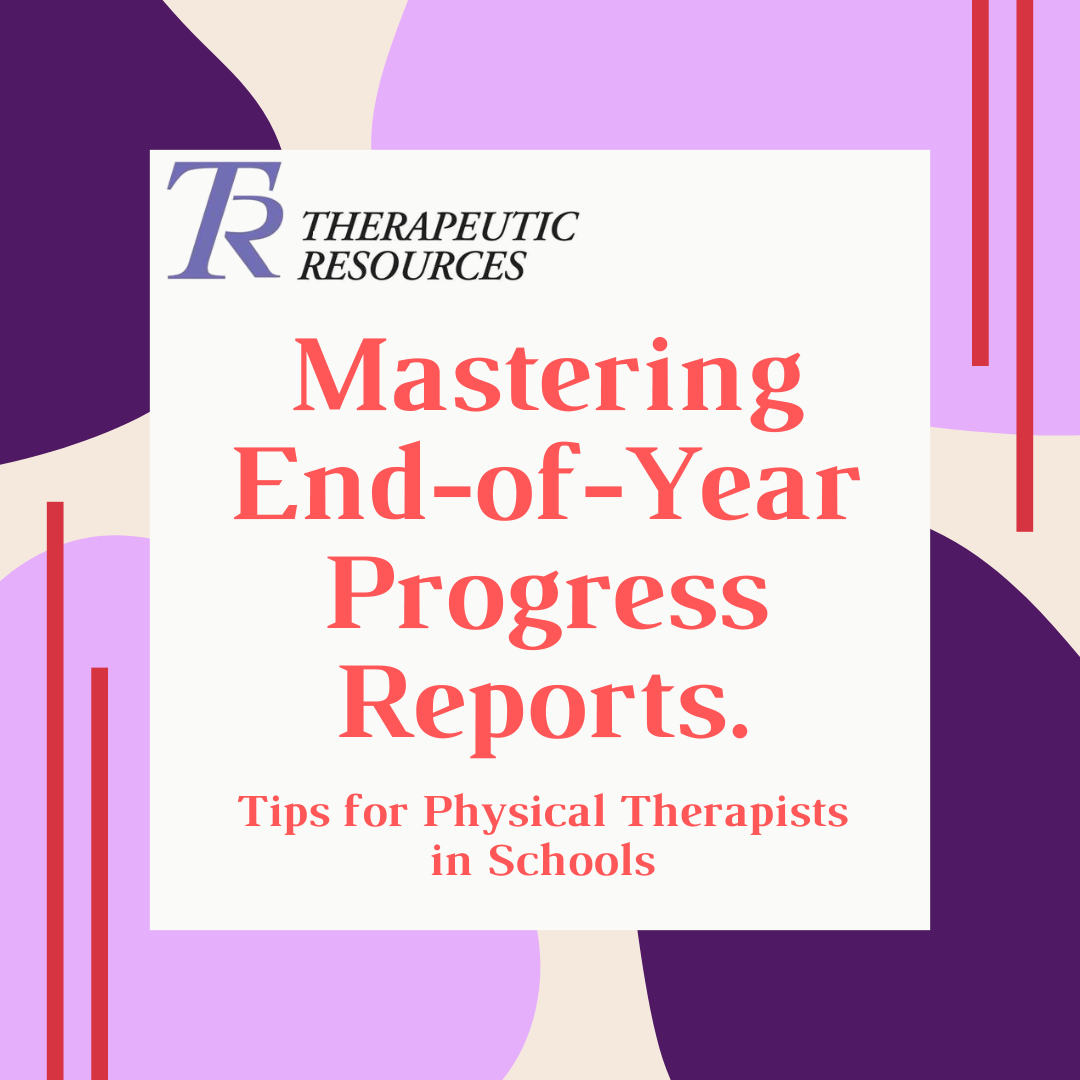« Back to Blog

Mastering End-of-Year Progress Reports: Essential Tips for Physical Therapists in Schools
May 15, 2024As the school year draws to a close, Physical Therapists (PTs) working in educational settings face the important task of writing end-of-year progress reports for their students. These reports are crucial not only for documenting the progress of each student but also for planning future interventions and communicating with parents and school staff about a student's needs and achievements. Writing effective and comprehensive progress reports can be a daunting task, so here are some essential tips to help you streamline the process and ensure your reports are informative and impactful.
1. Start with Clear Objectives
Before you begin writing, review the goals and objectives set at the start of the school year. These should serve as the foundation of your progress report. Clearly state each objective and use them as a framework to structure your report. This will not only help keep your report organized but also make it easier for the reader to understand the context of the student’s progress.
2. Use Specific, Measurable Data
Quantifiable data is key when reporting on student progress. Include specific measurements, test scores, or other quantitative data that illustrate how the student has progressed towards each goal. For instance, if a goal was to improve walking distance, specify how many feet or meters the student can now walk independently compared to the beginning of the year. This precise data provides clear evidence of improvement and helps set benchmarks for future goals.
3. Highlight Achievements and Challenges
While it’s important to focus on how students have met their goals, it’s equally important to document any challenges they faced. Describe the successes and any obstacles that may have hindered progress, providing a balanced view of the student’s overall performance. Acknowledging challenges helps in planning for additional support or adjustments needed in the upcoming year.
4. Provide Contextual Information
Context matters. Offer background information that can influence a student’s performance, such as attendance issues, changes in health status, or modifications in therapy techniques. This information can help readers understand external factors that may have impacted the student’s progress.
5. Include Visuals When Possible
Graphs, charts, and other visuals can enhance your progress report by making the data more digestible and engaging. Visual aids are particularly useful in quickly conveying progress trends over time and can complement your written descriptions.
6. Offer Constructive Recommendations
End your report with recommendations for future therapy interventions, summer programs, or follow-up sessions that might benefit the student. Suggest specific activities or resources that parents and teachers can use to help the student maintain or improve skills during school breaks. This not only shows your commitment to the student’s continuous improvement but also assists other professionals in supporting the student’s development.
7. Keep It Professional and Confidential
Always maintain a professional tone throughout the report and ensure that all information is presented respectfully and objectively. Additionally, be mindful of the confidentiality of the information you are handling. Securely store and share reports to protect the privacy of the students and their families.
8. Review and Revise
Before finalizing the report, take the time to review and revise your content. Ensure that all information is accurate, clear, and free of jargon. Having another colleague proofread your report can also help catch errors and improve clarity.
By following these tips, you can create effective and informative reports that will aid in the ongoing development of your students and enhance communication with parents and school personnel. Remember, a well-crafted progress report can make a substantial difference in a student's educational journey and ongoing therapy success. Therapeutic Resources always has cutting-edge positions that will let you contribute and improve your skill set. To explore our innumerable part-time, full-time time and per diem pediatric and adult-based positions, Send us your information here, and a placement manager will be in touch within 24 hours. Talk to you soon!
